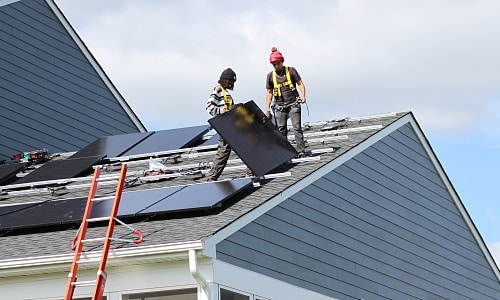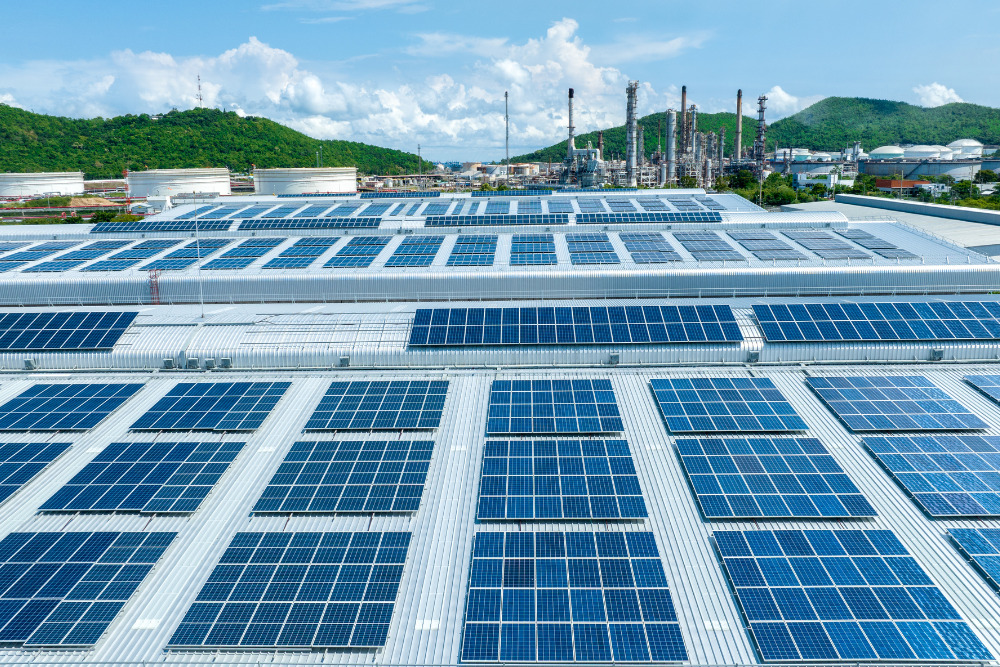Unknown Facts About Solar Panel Installation Virginia
Virginia Home Solar Panel Systems: Lumina Solar Specializes In Offering Advanced Photovoltaic Solutions For Homes And Businesses
History and Establishing
Have you ever wondered how a solar panel company springs from a mere stimulate of inspiration into a powerhouse of renewable energy? It typically starts with a vision-- one sustained by a mix of innovation, determination, and a pinch of serendipity. The journey of numerous solar business mirrors the development of the technology itself: from bulky, ineffective panels to streamlined, high-efficiency marvels utilizing the sun's bounty.
The Early Days
In the late 20th century, when solar energy was still a niche idea, pioneers planted seeds for what would end up being a global motion. Think of a little workshop filled with curious engineers, relentlessly try out solar batteries. Their enthusiasm was palpable, often driven by a desire to combat climate modification and lower reliance on nonrenewable fuel sources.
One such anecdote is about a founder who, inspired by an outdoor camping trip, understood that even in remote areas, the sun could power important gadgets. This easy observation sparked a business's objective to equalize access to clean energy.
Founding Concepts

- Development: Constantly pushing the boundaries of solar technology to enhance performance and durability.
- Sustainability: Dedicating to environmentally friendly production and minimizing carbon footprints.
- Ease of access: Making renewable resource services economical and practical for everyday users.
Milestones in Development
| Year | Key Event |
|---|---|
| 1985 | Company established in a little garage, focusing on research study and development. |
| 1995 | Very first commercial photovoltaic panel item released, getting regional attention. |
| 2005 | Broadened to global markets, welcoming global renewable resource goals. |
| 2015 | Introduced cutting-edge solar panel innovation with boosted energy conversion. |
Isn't it interesting how these incremental actions, frequently neglected, shape the energy landscape today? The photovoltaic panel company story is not practically technology; it has to do with a relentless mission for a brighter, cleaner future.

Developments in Solar Panel Technologies
Ever discovered how some photovoltaic panels shine brighter and last longer? It's not magic; it's the science of photovoltaic performance. more info Modern solar panel companies invest heavily in technologies like bifacial cells, which record sunlight from both sides, improving energy harvest without expanding roofing area. Have you ever wondered why some panels perform much better on cloudy days? That's due to advances in thin-film solar technology, which prospers under diffused light conditions.
Item Variations Customized to Unique Requirements
One size never ever fits all. Solar panel service providers now offer:
- Monocrystalline panels for optimum effectiveness and sleek visual appeals, suitable for space-constrained roofs.
- Polycrystalline panels, which offer an economical alternative without sacrificing excessive output.
- Building-integrated photovoltaics (BIPV), merging solar tech seamlessly into architectural aspects like windows and exteriors.
Choosing the ideal product isn't just about in advance cost; it's about matching your environment, energy goals, and long-term savings. Homes shaded by trees require panels that excel in low-light situations, something lots of overlook until energy bills climb up all of a sudden.
Technical Tips for Ideal Selection
- Assess the temperature level coefficient-- lower worths suggest panels lose less efficiency on hot days.
- Look for panels with boosted anti-reflective finishes to take full advantage of light absorption.
- Think about the panel's warranty not simply for flaws, but for ensured power output over decades.
- Don't undervalue the significance of the inverter technology combined with the panels; it can make or break your system's performance.
Beyond Panels: Emerging Trends
Think of solar panels that adjust their angle instantly to chase after the sun-- tracking systems are ending up being more available, increasing yield substantially. Or solar tiles that blend invisibly into your roofline, changing your home into a quiet, self-sufficient power generator. These innovations are improving what a solar panel company uses-- not just products, however integrated energy solutions.
Market Existence and Global Operations
Ever wonder why some solar panel business seem to grow up in every corner of the globe while others barely make a ripple? The distinction lies not just in innovation however in mastering the art of navigating varied markets. Broadening worldwide resembles planting seeds in different environments-- you must understand each environment's unique conditions to thrive.
Take, for instance, the elaborate dance of logistics and supply chain management. Delivering panels midway throughout the world isn't just about range; it's about timing, customizeds, tariffs, and adjusting to local need fluctuations. A business with robust worldwide operations anticipates these variables, making sure panels arrive on schedule without pumping up expenses. This insight is no little task and often separates industry leaders from fans.
Key Strategies for Expanding Market Existence
- Localized production: Establishing production hubs near target markets minimizes shipping delays and import intricacies.
- Strategic partnerships: Working together with local companies speeds up market penetration and constructs trust.
- Adaptive product design: Customizing photovoltaic panel tech to weather, sun intensity, and infrastructure nuances improves efficiency and acceptance.
What about the human aspect? Photovoltaic panel companies operating internationally must fix up cultural distinctions and regulatory subtleties without forgeting their core objective. For instance, what operate in a sun-drenched desert may falter in a damp coastal area. Often, the most innovative solution is merely listening-- taking in regional insights to refine technology and approach.
Experts typically encourage a phased rollout rather than a shotgun expansion. Why run the risk of overextension when determined development constructs sustainable momentum? Scaling wisely suggests balancing aspiration with functional strength - Residential Solar Panels Virginia. After all, in the race for sustainable energy supremacy, patience can be as important as speed
Ecological Effect and Sustainability Practices
When photovoltaic panels initially emerged, many presumed they brought no ecological luggage. The truth is more nuanced. The production of solar batteries includes unusual earth metals and energy-intensive procedures, which can leave a substantial carbon footprint before the panels even reach rooftops. The real environmental cost depends greatly on the sustainability practices utilized by the photovoltaic panel business throughout the lifecycle of their products.
How often do we stop briefly to consider what happens to solar panels at the end of their beneficial life? Unlike batteries or electronic devices, solar panels can last 25-30 years, but disposal and recycling pathways remain underdeveloped in many regions. A company dedicated to decreasing ecological harm will have a robust strategy for recycling photovoltaic products, restoring important silicon, glass, and metals to avoid landfill build-up.
Key Sustainability Techniques
- Utilizing low-impact manufacturing methods that lessen water and energy usage.
- Executing closed-loop systems to recycle production waste back into brand-new panels.
- Engaging in transparent supply chain audits to make sure ethical sourcing of raw materials.
- Creating panels for much easier disassembly to assist future recycling efforts.
It's worth noting that some solar companies have originated ingenious methods, such as integrating naturally degradable elements or utilizing less toxic chemicals during fabrication. This not only decreases ecological stress however also sets a precedent for the industry. The question remains: can the solar market really pivot towards a circular economy design without sacrificing performance or price?
Professional Tips for Assessing Sustainability
- Inquire about the company's commitment to carbon-neutral manufacturing and whether they balance out emissions.
- Examine if they partner with certified recycling centers devoted to solar panel waste.
- Search for openness reports detailing environmental impacts and sustainability goals.
- Think about the longevity and guarantee of panels as an indirect procedure of resource effectiveness.
In the end, choosing solar energy should mean more than just slashing electricity expenses; it has to do with supporting a future where energy is gathered responsibly and waste is thoughtfully handled. Solar panel companies that welcome this viewpoint not just light up homes however likewise cast a brighter light on sustainable innovation.